How Much Does It Cost to Replace a Floor?
Flooring is one of the most important parts of a home’s interior design. It runs through every room and sets the space’s tone and style. Flooring is also one area that gets heavy use and abuse daily. Whether a low-traffic area like the bathroom or a high-traffic area like the kitchen, your floor takes a beating regularly. Some flooring materials can last for decades without replacement. Others may need to be replaced after a few years in a high-use environment. While new flooring has its own set of costs, replacement can be a completely different project.
Costs for replacement vary depending on the material, subfloor condition, and replacement area size. The national average cost to replace your flooring is $1,500 to $8,000, with most people paying around $3,500 to replace hardwood flooring in a 200 sq.ft. kitchen. This project’s low cost is $500 to replace a basic ceramic tile floor in a 50 sq.ft. bathroom. The high cost is $25,000 to replace all the flooring throughout a 2,500 sq.ft. home using several materials.
Floor Replacement Cost
| Cost to Refloor a House | |
|---|---|
| National average cost | $3,500 |
| Average range | $1,500-$8,000 |
| Low-end | $500 |
| High-end | $25,000 |
In this guide
Cost to Refloor a House by Size
Average Cost to Replace Flooring by Location
Floor Replacement Cost by Material
Changing Flooring Cost by Type of Conversion
Labor Cost to Replace a House Floor
Signs That You Need a New Floor
Floor Replacement vs Refinishing
Floor Materials Comparison
Enhancement and Improvement Costs
Additional Considerations
FAQs
Floor Replacement Cost by Project Range
2022 Notice: The Effect of the Pandemic on the Flooring Industry
Many businesses and industries have been impacted by the Covid-19 pandemic over the last two years. The flooring industry is no exception.
The biggest impact that people may see directly impacting them when it comes to residential flooring is in wood floors. There was a decrease of 6.7% of raw wood delivered in 2021, translating into a shortage of material for wood flooring and other surface materials. This means that anyone looking to install new wood floors may have trouble finding the material they want or may have increased costs for their project.
For the rest of the flooring industry, many of the same issues impact supply and contractors as in other parts of the construction industry. This includes supply chain and labor issues, coupled with a big explosion of new home building. This can mean delays and increased costs for many projects. Anyone looking to replace their floor in the coming months should consider purchasing material and hiring their contractor sooner rather than later to help lock in costs before they rise again.
Cost to Refloor a House by Size
You can have many flooring types in a home. This means there is a range of replacement costs when the time comes to take up your current flooring and install something new. Replacing your floor ranges from $5 to $25 a sq.ft. for most flooring types. Your home size also impacts the project’s cost if you refloor the entire home.

| Size | Cost to Replace Flooring (Labor Included) |
|---|---|
| 800 sq.ft. | $4,000 - $20,000 |
| 1,000 sq.ft. | $5,000 - $25,000 |
| 1,200 sq.ft. | $6,000 - $30,000 |
| 1,500 sq.ft. | $7,500 - $37,500 |
| 2,000 sq.ft. | $10,000 - $50,000 |
Average Cost to Replace Flooring by Location
In most cases, flooring wears at different rates. This means you are unlikely to need to refloor the entire home unless you are doing a complete remodel or have had a flood or other issue. Most of the time, you are likely replacing the flooring in one room or area. Each space can still have a wide range of materials and costs. Below are the average costs to replace the flooring in each area based on the average size of that space.

| Location | Cost to Replace Flooring (Labor Included) |
|---|---|
| Bathroom | $250 - $2,500 |
| Bedroom | $750 - $3,750 |
| Kitchen | $1,000 - $5,000 |
| Garage | $1,500 - $7,500 |
| Deck | $3,000 - $16,000 |
| Mobile Home | $3,500 - $57,500 |
| Basement | $5,000 - $25,000 |
Cost to Replace a Bathroom Floor
The cost to replace a bathroom floor is $250 to $2,500. This assumes the bathroom floor ranges from 50 to 100 sq.ft. Smaller half baths and larger master bathrooms fall outside this range. Most bathroom floors use tile, but they can have other materials. Vinyl 1, hardwood, and some stone types can be used in the bathroom. Your exact costs depend on the flooring you replace.
Bedroom Floor Replacement Cost
The cost to replace a bedroom floor averages $750 to $3,750. This assumes an average bedroom size of 150 sq.ft. Bedrooms can be as small as 70 sq.ft. or much larger. You may have different costs if your bedroom is smaller or larger. The most common bedroom flooring type is carpet, but this is not the only type used. You can also have a tile floor, hardwood, stone, laminate, or vinyl in the bedroom.
Cost to Replace a Kitchen Floor
The cost to replace a kitchen floor ranges from $1,000 to $5,000. This assumes an average size of 200 sq.ft. If your kitchen size differs, your costs could vary. Kitchens have a wide range of materials, including hardwood, vinyl, laminate, and tile. Like bathrooms, choose a water-resistant material to avoid moisture problems.
Cost to Replace a Garage Floor
The cost to replace a garage floor is $1,500 to $7,500. These costs are for replacing the concrete flooring in single and two-car garages. If you need to replace the flooring in a larger garage, your costs could be different. Many garage floors can last for years with few problems. However, concrete may eventually develop cracks and holes and need replacement. This can be a more invasive flooring replacement than in other areas and has slightly higher costs.
Deck Floor Replacement Cost
The cost to replace the boards on your deck floor averages $3,000 to $16,000. This assumes your deck ranges from 300 to 400 sq.ft. Numerous materials are used for deck floorboards, including composites and a range of hard and softwoods. Some exotic hardwoods 2 cost more than $40 a sq.ft. to replace, making this a more expensive flooring replacement project than some other areas.
Cost to Refloor a Mobile Home
The cost to refloor a mobile home is $3,500 to $57,500. Mobile homes come in a wide range of sizes. It is common to see mobile homes between 700 and 2,300 sq.ft., resulting in a wide range of costs with reflooring. Like permanent homes, mobile homes can be floored in many materials. The cost of replacing the flooring is identical to replacing it in a permanent home, with size and flooring choice being the biggest determining factors in total cost.
Basement Floor Replacement Price
The cost to replace a basement floor ranges from $5,000 to $25,000. This assumes a basement floor of 1,000 sq.ft. Your costs could be different when replacing a portion or if you have a larger basement. A finished basement can have many flooring types. Basements can have carpet, hardwood, tile, stone, and other flooring materials if they are installed properly and steps have been taken to mitigate moisture issues. Like other areas of the home, it is common to use a mixture of materials throughout the basement.
Floor Replacement Cost by Material
The material heavily influences the cost of replacing your flooring. Each material has costs for removal and installation and the material. The costs below are for the average costs of removal and replacement of each type. They assume you replace the floor with a newer version and do not switch materials. Costs include the material and labor for removal and installation.

| Material | Average Replacement Costs per Sq.Ft. (Labor Included) |
|---|---|
| Vinyl | $4 - $27 |
| Concrete | $6 - $15 |
| Carpet | $7 - $12 |
| Hardwood | $7 - $15 |
| Laminate | $8 - $18 |
| Cork | $9 - $20 |
| Stone | $10 - $75 |
| Tile | $10 - $219 |
| Bamboo | $12 - $27 |
| Marble | $14 - $65 |
Cost to Replace Vinyl Flooring
The cost to replace vinyl flooring is $4 to $27 a sq.ft. There are several vinyl flooring types. Some are easier to remove and install than others. Glue-down vinyl is very easy to install. However, the glue becomes stronger as it ages. This means removing it is very time-consuming, difficult, and expensive. The vinyl type you replace has an impact on cost.
Cost to Replace Concrete Floors
The cost to replace a concrete floor averages $6 to $15 a sq.ft. Concrete is very durable but can develop issues. It can crack or crumble, and it may develop deep cracks or craters in freeze/thaw areas. When this happens, it must be replaced rather than patched. Replacing concrete means removing the old, which can be jackhammered or removed in large sections, depending on the type. Once the old is removed, new concrete can be poured. It takes several weeks to months to cure fully.
Carpet Replacement Price
The cost to replace carpet is $7 to $12 a sq.ft. Carpeting is one of the more frequent flooring types to replace. Even high-quality carpet can become worn, necessitating replacement. Carpets can be found in many materials, patterns, colors, and pile depths. They can also have a range of pad types and thicknesses beneath them. This and the cost of removing the old carpet are the biggest determining cost factors.
Cost to Replace Hardwood Floors
The cost to replace hardwood floors ranges from $7 to $15 a sq.ft. There are many types of hardwood flooring. Solid hardwood floors can last for centuries without needing to be replaced. Engineered hardwood floors may need to be replaced more often because the thin veneer 3 on top can wear. Some exotic hardwoods cost significantly more than domestic hardwoods to purchase and install. If this is the case, your costs could be higher.
Cost to Replace Laminate Flooring
The cost to replace laminate flooring ranges from $8 to $18 a sq.ft. Laminate flooring often needs replacement more often than other types. It is susceptible to moisture issues, pressure, and scratches. For this reason, it may need replacing sooner than other materials. Laminate is fairly easy to install and remove. Floating floors are generally the least expensive to replace.
Cork Flooring Replacement Price
The cost to replace cork flooring averages $9 to $20 a sq.ft. Cork is a resilient material that resists moisture and other issues. However, it may need replacement if it has seen heavy foot traffic. Cork comes in tiles and planks. It can be found in several colors and patterns and can be installed in a few methods. Removing an old glue-down cork floor can be very time-consuming and expensive, raising costs.
Cost to Replace a Stone Floor
The cost to replace a stone floor is $10 to $75 a sq.ft. You can use many stone types for flooring. This includes slate 4, bluestone, travertine, limestone 5, and quartzite. Each has a range of costs related to its quality, rarity, and installation difficulty. Some stones can be rare and fairly expensive. Most stone floors are fairly easy to remove, making replacement easier than some materials.
Cost to Replace a Tile Floor
The cost to replace a tile floor averages $10 to $219 a sq.ft. Tiles can be made from varying materials and have many types. Tiles can be ceramic, stone, glass, metal, concrete, or porcelain. Each has a different cost to purchase and install. Some tile floors can be fairly easy to remove for replacement. However, older tile floors can be set in “mud” or a thick mortar 6 layer. This can make them very difficult and time-consuming to remove for replacement.
Cost to Replace Bamboo Flooring
The cost to replace bamboo flooring ranges from $12 to $27 a sq.ft. There are several bamboo flooring types. Some are very durable and last for decades. Others are less durable and may require replacement sooner. Many bamboo floors can be floated, making removal and replacement faster and easier than other materials. Costs depend on the bamboo type and installation.
Marble Floor Replacement Price
The cost to replace a marble floor is between $14 and $65 a sq.ft. Marble is a beautiful stone that can last for centuries. However, it is susceptible to damage, including cracking and stunning, which cannot be repaired. Many marble types and colors are available. The rarer the material, the higher its average costs. Most marble is fairly simple to remove, making replacement easier than other materials.
Changing Flooring Cost by Type of Conversion
You could also replace your flooring with something new. This flooring conversion can be done from one material to nearly any other, depending on the area. Below are some of the most popular flooring changes for the home and their costs for removal and installation.

| Conversion | Average Costs per Sq.Ft. (Labor Included) |
|---|---|
| Carpet to Vinyl | $3 - $16 |
| Carpet to Hardwood | $7 - $13 |
| Carpet to Laminate | $7 - $14 |
| Tile to Hardwood | $7 - $17 |
| Tile to Laminate | $7 - $18 |
| Carpet to Tile | $10 - $214 |
Replace Carpet With Vinyl Flooring Price
The cost to replace carpet with vinyl flooring is $3 to $16 a sq.ft. This includes removing the old carpet and purchasing and installing the vinyl. There are many types of vinyl flooring. This includes sheet vinyl, vinyl tiles, and vinyl planks. The vinyl can also be installed using several methods, all of which have different costs. The more complex the installation, the higher the total costs.
Cost to Replace Carpet With Hardwood
The cost to replace carpet with hardwood floor averages $7 to $13 a sq.ft. This includes the cost of removing the old carpet and the hardwood installation. Many types of hardwood can be used in the home. Domestic hardwoods are the least expensive, while exotic hardwoods are the most costly. Solid hardwood can only be used above grade, while engineered hardwood can be installed in basements and other below-grade areas. This can impact the project cost.
Changing Carpet to Laminate Floor Price
The cost to replace carpet with laminate flooring is $7 to $14 a sq.ft. This includes removing the old carpet, the laminate, and installation. There are many laminate flooring types. This includes tile and plank styles, thicknesses, and finishes. Generally, thinner laminates can be more challenging to install. This can raise the cost of installation, even though the material may be less expensive.
Cost of Replacing a Tile Floor With Hardwood
The cost to replace a tile floor with hardwood is $7 to $17 a sq.ft. There are many types of tile. Some are fairly easy to remove for replacement. Others may be more difficult, particularly for an older floor. There are also several hardwood types, which can be installed in different ways. The total costs depend on the removed tile type and age and the type of hardwood.
Cost to Replace Tile With Laminate
The cost to replace tile with laminate is $7 to $18 a sq.ft. Tile may be easy or difficult to remove. It depends on the tile type, age, and thickness. For this reason, the removal alone could have a range of costs. There are also a few laminate types, which can be installed in different ways. The total costs depend on the removed tile’s type and age and the laminate type.
Cost to Replace Carpet With Tile
The cost to replace carpet with tile is $10 to $214 a sq.ft. Carpet is fairly easy to remove and does not take much time or effort. The tile material and installation are the bulk of the project costs. Tiles come in many different types, sizes, and forms. They can be ceramic, stone, glass, metal, or porcelain. Each has a different cost for material and installation.
Labor Cost to Replace a House Floor
The cost to replace your flooring is driven by material and partly by labor costs. Each material has varying costs for removal and installation.
Below are the labor costs for replacing each flooring type. They include the removal and installation of each type, but not the conversion from one flooring to another.

| Material | Average Costs per Sq.Ft. (Labor Only) |
|---|---|
| Carpet | $2 - $4 |
| Vinyl | $3 - $15 |
| Concrete | $4 - $9 |
| Hardwood | $4 - $9 |
| Cork | $5 - $8 |
| Laminate | $5 - $9 |
| Stone | $5 - $10 |
| Tile | $9 - $15 |
| Bamboo | $10 - $17 |
| Marble | $11 - $14 |
Signs That You Need a New Floor
Different floors can wear out at different rates. This can make it hard to tell when you need to replace the floor. However, homeowners may replace their floor when it looks worn, old, or out of date. For example, a color of flooring that is dated may disrupt the entire decor, even if the floor is in good condition.
Other signs that may indicate it is time to replace the floor include significant cracking in hard floors like tile, stone, and concrete. You may also see warping, swelling, or humping in bamboo, wood, or laminate that can indicate a serious moisture problem that must be addressed.
Floors that are squeaking or moving can indicate an issue with the subfloor 7 below. Finally, it may be time to replace your current floor if its refinish cost approaches the replacement cost.

Floor Replacement vs Refinishing
Not all floor materials can be refinished. Some floors, such as solid hardwood and natural stone, can be given a new finish to restore their surface appearance. This can bring new life into an old and worn floor. Some floors can also be polished or waxed to refinish their surface and bring them back to life.
Keep in mind that refinishing is only surface deep. It does not address cracks, buckling, warping, chipping, or other more serious issues. It also cannot fix stun marks on marble floors or serious staining. In all these scenarios, the only option may be to replace the floor.
Flooring replacement and refinishing can have a wide range of costs, depending on the floor’s condition and material.

| Project | Average Costs per Sq.Ft. (Labor Included) |
|---|---|
| Refinishing | $3 - $8 |
| Replacement | $5 - $25 |
Floor Materials Comparison
When the time comes to replace flooring in your home, you have the task of deciding whether to use the same flooring or opt for something new. Below, we compare each type on several criteria, such as maintenance, replacement difficulty, noise, sustainability, and lifespan. This can help you find the material that fits your lifestyle and home.
Maintenance
All flooring materials require some maintenance. The floors below are ranked regarding how difficult they are to maintain, from low to high. Maintenance includes cleaning difficulty, upkeep, and needed repairs or stain removal to help the floors look their best.

| Material | Difficulty of Maintenance |
|---|---|
| Vinyl | Low |
| Cork | Low |
| Tile | Low to moderate |
| Concrete | Moderate |
| Hardwood | Moderate |
| Bamboo | Moderate |
| Laminate | Moderate |
| Carpet | Moderate to high |
| Stone | Moderate to high |
| Marble | Moderate to high |
Difficulty of Replacement
When considering the eventual replacement of the floor, consider how easy it is to remove and install. Some flooring is relatively easy to remove and replace. Others, such as old vinyl or cork, can be very difficult and time-consuming to remove. Below, we rank the various types by how difficult they are to replace, from easy to difficult.

| Material | Difficulty of Replacement |
|---|---|
| Laminate | Easy |
| Carpet | Easy |
| Hardwood | Easy to moderate |
| Bamboo | Easy to moderate |
| Tile | Easy to moderate |
| Concrete | Moderate |
| Stone | Moderate |
| Marble | Moderate |
| Vinyl | Moderate to difficult |
| Cork | Moderate to difficult |
Noise
Flooring can be loud underfoot, particularly if you are on the floor below and someone is walking above. In the table below, we rank the floor choices on how much sound they produce. Soft materials like carpet rank low, while hard materials like stone and marble rank high.

| Material | Acoustics |
|---|---|
| Carpet | Low |
| Cork | Low |
| Laminate | Low to moderate |
| Vinyl | Low to moderate |
| Hardwood | Moderate |
| Bamboo | Moderate |
| Tile | Moderate to high |
| Concrete | Moderate to high |
| Stone | High |
| Marble | High |
Sustainability
When making your home green or sustainable, consider the flooring’s sustainability. Some floors, such as cork and bamboo, are made from easily renewable materials. Others like stone or vinyl contain little-to-no sustainable or renewable material. Carpet is the one outlier because it can be made of wool, which is very sustainable, or materials like polyester, which is not. The following floors have been ranked in sustainability, from high to low.

| Material | Sustainabilty |
|---|---|
| Cork | High |
| Bamboo | High |
| Hardwood | Moderate |
| Tile | Moderate |
| Concrete | Moderate |
| Carpet | Low to high |
| Vinyl | Low |
| Stone | Low |
| Laminate | Low |
| Marble | Low |
Lifespan
Consider the lifespan when you replace your flooring. Some materials like stone and hardwood can last for hundreds of years. Others, such as carpet, may have shorter lifespans. The floors below have been ranked from longest lifespan to shortest to compare.

| Material | Lifespan |
|---|---|
| Marble | Long |
| Stone | Long |
| Hardwood | Long |
| Tile | Moderate to long |
| Concrete | Moderate |
| Cork | Moderate |
| Vinyl | Moderate |
| Bamboo | Moderate |
| Carpet | Short to moderate |
| Laminate | Short to moderate |
Enhancement and Improvement Costs
Subfloor Replacement
You may find that you need to replace your subfloor when replacing your flooring. This is the layer beneath your flooring, over the joists, giving the floor stability. The price to replace the subfloor is $3 to $12 a sq.ft.
Replacing Floor Joists
There may also be times when the floor joists may need replacement. The floor joists support the floor, and the floor may no longer be stable if they become compromised. The price to replace the joists is roughly $10 to $25 a sq.ft.
Radiant Floor Heating
When replacing your flooring, this is a good time to add radiant floor heating 8. Radiant heating uses hydronics or electricity to warm the room via convection heating. The price to install is $10 to $25 a sq.ft.
Baseboards
If you have baseboards on your walls, you have two options when replacing the floors. The boards can be removed and reinstalled, which must be removed for some flooring like carpets, or you can leave them in place and install a quarter round to cover the gap between the new flooring and the baseboards. Expect costs of around $1 a linear foot extra for flooring replacements.
Additional Considerations and Costs
- When to replace. You can replace your floors if they look dated or worn. Otherwise, they should be replaced if they are damaged beyond repair.
- Continuity. You can use the same flooring throughout a home for continuity or change things up from room to room. There is no one method for this.
- Value. Of the various floors, hardwood adds the most value to your home.
- Refinishing. The length of time to refinish your floors varies by the refinishing type. At a minimum, expect at least two days before you have access to your floors.
- Pets. If you have pets, opt for flooring like porcelain tile, engineered hardwood, or vinyl, which do not scratch from claws and are impervious to urine and accidents.
FAQs
- How much does it cost to have a floor redone?
The average cost to replace your floors ranges from $5 to $25 a sq.ft. The floor you are replacing impacts the final cost.
- Is it cheaper to refinish or replace floors?
It is usually less expensive to refinish the floor rather than replace it. However, not all floors can be refinished.
- How much do new floors increase home value?
This depends entirely on the floor. Hardwood gets the best return, with an ROI of between 70% and 80%.
- Should a kitchen floor match the living room floor?
This depends on several factors. If the floor plan is open or there is a wide doorway between the two, then yes, it looks best when they are the same material. If these are two separate rooms with an established doorway, they do not have to match.
- What should I replace my floors with?
This depends on many factors, including your home’s age, style, lifestyle, and whether you have children or pets. Tile makes the most sense in rooms like bathrooms, while carpet is the most popular in bedrooms. Hardwood is generally the best option for resale value.
- How hard is it to replace flooring?
This depends on the flooring. If it is a floating floor, it is easy to replace. If it is a glued-down vinyl, it is very difficult to replace. Each material has a set of concerns for replacement.
Remodeling Terms Cheat Sheet
Definitions in laymen's terms, cost considerations, pictures and things you need to know.See full cheat sheet.
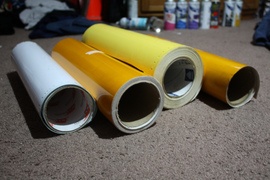 1 Vinyl: A synthetic plastic made from ethylene and chlorine. Vinyl has many applications in the construction industry and it is widely used in sidings, window frames, roofing and gutters, among others
1 Vinyl: A synthetic plastic made from ethylene and chlorine. Vinyl has many applications in the construction industry and it is widely used in sidings, window frames, roofing and gutters, among others
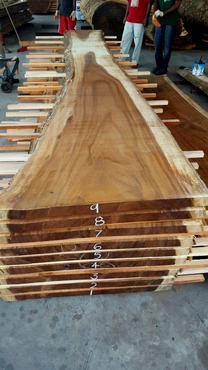 2 Exotic hardwoods: Timber from deciduous, flowering, seed-bearing trees that grow in tropical rainforests
2 Exotic hardwoods: Timber from deciduous, flowering, seed-bearing trees that grow in tropical rainforests
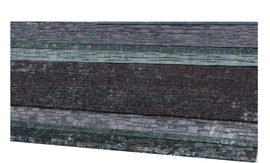 4 Slate: A fine-grained rock, typically bluish-gray in color, that can easily be split into thin layers and is commonly used as a roofing material
4 Slate: A fine-grained rock, typically bluish-gray in color, that can easily be split into thin layers and is commonly used as a roofing material
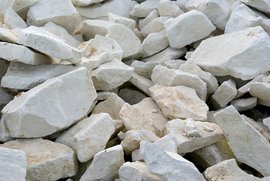 5 Limestone: A type of sedimentary rock, made up of mostly calcite and aragonite
5 Limestone: A type of sedimentary rock, made up of mostly calcite and aragonite
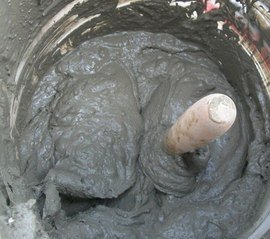 6 Mortar: A mixture of Portland cement or lime or a combination of both, sand, and water used to bind bricks, stones, and concrete masonry units together
6 Mortar: A mixture of Portland cement or lime or a combination of both, sand, and water used to bind bricks, stones, and concrete masonry units together
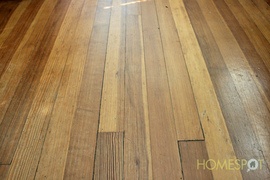 7 Subfloor: The bottom-most layer of a floor, supported by joists, over which finished flooring material is laid
7 Subfloor: The bottom-most layer of a floor, supported by joists, over which finished flooring material is laid
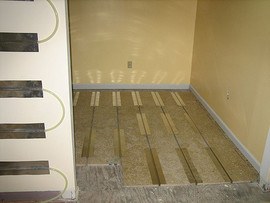 8 Radiant floor heating: (Also known as Radiant floor) A heating system using tubes or electric wires installed underneath the flooring
8 Radiant floor heating: (Also known as Radiant floor) A heating system using tubes or electric wires installed underneath the flooring
How much does it cost to replace a floor in my city?
Cost to replace a floor varies greatly by region (and even by zip code). To get free estimates from local contractors, please indicate yours.












